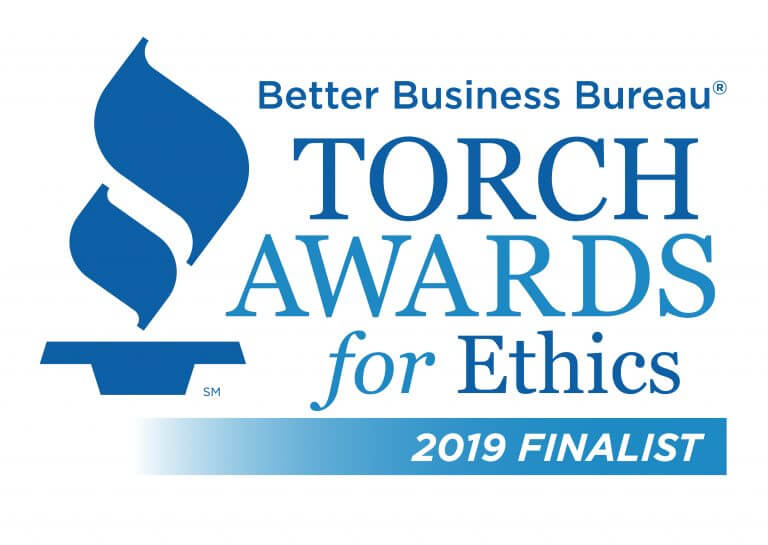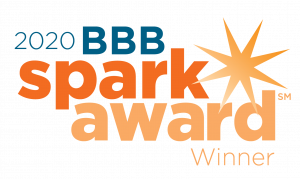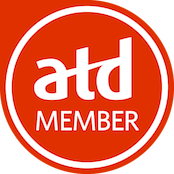|
Article by Alyssa Elting McGuire, MA, MPA Most hospitals and skilled nursing facilities adopted electronic medical records years ago. Now, larger community-based facilities, such as assisted living and residential care, are slowly adopting electronic health records; however, the adult care home industry has yet to jump on the electronic records bandwagon. This lag in adoption is likely due to several factors. Adopting electronic records can be more challenging for adult care home providers without electronic record experience who may initially believe they lack the money, staffing, and infrastructure to implement this change. Fortunately, these potential barriers are not insurmountable. As larger facilities migrate to electronic record-keeping, it is simply a matter of time before more and more providers in Oregon start implementing electronic record-keeping systems in their adult care homes. One trailblazer in the area of electronic record use in adult care homes is Shannon Carskadon. Shannon owns and operates Silver Cloud Adult Family Homes in Forest Grove and has been in the business for 25 years. I recently had the opportunity to sit down with Shannon to talk about her experience transitioning to an electronic records system earlier this year. The system Shannon uses is supported through Beaverton-based company Care Facility Management Systems that works with individual adult care home providers to “cost-effectively transition their business operations from paper to electronic records.” Owners Gueipin Xi and Elaine Hartman bring over twenty years of experience providing technical support and security to health care clients. Interview with provider Shannon Carskadon (Interview has been edited for brevity and clarity) Have you used electronic records for your homes before? I used Excel files, which I printed out for licensing, but I had no system set up. What made you decide to transition to electronic records? There were current issues [with the hard copy records]. At licensing inspections, the books would be torn apart and nothing got put back correctly. There was too much repetition and similar mistakes. There was a huge potential for medication errors. Elaine [with Care Facility Management Systems, LLC] called me and asked if I’d be interested in helping build this program for use in other adult foster homes. The company takes care of online security with a private network, and provides training and support to use the system. I was all for it. Tell me about the process of transitioning your paper records to the electronic records? How long did it take? Gueipin and Elaine provided me with the hardware and software, set up, and training. They also provide the system security, and ongoing technical support for the electronic records system. The support is amazing. Often, providers are isolated. For me, it feels like a professional system with support and cohesion. The support is amazing. -on working with Care Facility Management Systems, LLC At first, it was about 10-15 hours of work at the first of the month. I first started with medications only [eMAR], and it took as long as it takes to enter medication orders. The eMAR is a no fail system. For example, with a PRN, caregivers have to write the result in the record, or they cannot close the entry. Also, I can easily track narcotics using the system. There was a learning curve, but my caregivers picked it up quickly. We worked on it piece-by-piece until they were comfortable with each section. Elaine then came to my home with a large scanner. I scanned all resident records into the system and they’re saved in a secure folder. All the [paper] records I have left are in two binders. What are some other benefits of the system? I can send and receive [electronic] faxes to the doctor, and I can have legal representatives electronically sign documents. We also use the system to document resident activities and facility records, such as smoke detector testing. I can add reminders and tasks for staff. Caregivers log in with an individual login and see the reminders and tasks. I can run reports and look at tasks that were done. I can also see when caregivers read an email I sent. My data is secure and consistently updated, and I can access the information securely and remotely. If we have a fire or earthquake, I can get into the system remotely and I don’t have to worry about losing records. Tell me about your renewal inspection after you started using an electronic records system. It saved a lot of time. The inspection at my first home was in January (2019), and the renewal inspection of my second home was in March. I learned from the first inspection, and had everything ready to go for my second inspection. The licensor was in-and-out in two hours and got everything [the licensor] needed. I had no medication violations. The licensor was in-and-out in two hours….I had no medication violations. What advice do you have for other providers who are considering the transition to electronic records, but are concerned about either cost, the challenge of transitioning, licensing, or other issues? Take the time to learn the program. It’s especially beneficial for multiple homes. I can run compliance reports, and I can check on caregivers remotely and run audits to see who logged in, when, and what actions they took. The program is customized so it meets licensing requirements. If you do your due diligence, the system helps you be compliant. Finally, the cost is worth it. It’s less than ink and paper, and that doesn’t include the time saved. We’ve been thrilled with this. I can’t say enough positive about it. About the Author Alyssa is founder, principal consultant and training specialist with Oregon Care Home Consulting. She has spent the majority of her career providing program service delivery, regulatory leadership, training development, and program coordination and management in government and not-for-profit organizations. She is passionate about helping current and future adult care home providers in Oregon successfully navigate the licensing process and provide quality care to seniors.
0 Comments
Article by Alyssa Elting McGuire Today, March 8th, is International Women’s Day. March is Women’s History Month. Every day should be a day to celebrate the lives, strengths, and accomplishments of women. It’s no secret that women make up the majority of caregivers for both seniors and children. It has been researched and written about for years. In families, of course, the care burden is primarily placed on the shoulders of female spouses and daughters. According to the Alzheimer’s Association, “Approximately two-thirds of caregivers are women…and one-third of dementia caregivers are daughters.”  If we look at the numbers for adult care homes, we can see there isn’t a significant difference between family and professional caregivers, in this regard. There are almost 1,600 adult care homes in Oregon, and based on a quick sampling of the State’s long-term care facility search site, it is clear a significant percentage are operated by women. I think we’re starting to see a slow paradigm shift in our culture where there is less expectation of caregiving being “women’s work,” and where more men are proudly taking on caregiving roles. Anecdotally, I’ve seen a significant increase in the number of men who are professional caregivers and nurses opening adult care homes over the past few years and being the primary caregivers, or working along side their female partners. This is a good thing. Even with this slow shift taking place, the majority of caregivers are still women. According to a 2018 Portland State University report on adult foster homes in Oregon, 88% of licensees live in the adult care home, and a third had children under 17 living at home. From this, we can conclude that many women are both providing care for residents and their children. This is both a benefit and a challenge. It really is more of a benefit, though, if we consider these women would be caring for children, or having to find and pay for care for children, regardless of where they worked. The adult care home business provides women with the opportunity to be their own bosses yet also care for children or aging parents while working at home and making a solid income. What other business truly provides this opportunity for women?  In this regard, one significant benefit of owning an adult care home is that parents can stay home with their children while working. The adult care home business provides women with the opportunity to be their own bosses yet also care for children or aging parents while working at home and making a solid income. What other business truly provides this opportunity for women? So, on this International Women’s Day, let’s take the opportunity to recognize and appreciate the work of women around the world, and also here at home. Let’s continue to recognize the important work of adult care home providers and support those providers who are making an important contribution to both the older generations, and the next.
Article by Alyssa Elting McGuire, MA, MPA I was recently sitting in a class on the topic of website marketing offered through the Small Business Development Center, and I started thinking to myself, “why do so many adult care home businesses not have websites?” I’ll be the first to admit I’m no marketing expert, but I can say I recognize the value of a small business having an online presence. Why, as an adult care home provider, should you invest the time and money into having a website or an alternative web presence for your adult care home business? I’d like to give you seven reasons why you need an online presence that showcases you and your adult care home.
You don’t have to be a web designer or developer to create your web presence. If you have some understanding of website development and design, you can create your own site, but your time is money, so I would encourage you to consider hiring out this service, or using a service that will do the work for you to market your home. Let the professionals handle it. It will be worth your time and money, and you’ll be on the right path to creating a professional, online presence for your adult care home business.
Article by Alyssa Elting McGuire, MA, MPA When I was a young college student, my professional goal was to ultimately become an executive director of a non-profit organization, or reach a higher-level position in government. I also wanted to make a good income. Yes, I realized as I got older it was a bit idealistic and naïve to think I’d make a lot of money working in the public sector. Over the years, though, what I have learned about myself is that money and prestige are not the main motivating factors in my life. I eventually recognized my original goal was not actually about position or money, but about being in a position with enough authority to make a real difference.
What is your personal definition of success? Is having a high-level position and a high income important, or is having a family and helping others your definition of success? Should we define a successful person as a well-rounded person? Here are several suggestions to help you find your own success.
Article by Alyssa Elting McGuire, MA, MPA So, you’re thinking of opening your own adult care home for seniors and persons with disabilities? Congratulations! This is an exciting decision. Maybe you’ve worked as a caregiver for several years in an adult care home, assisted living facility, nursing facility, or as an in-home caregiver.
You’ve now decided you’d like to take the next step and become an adult care home provider with your name listed on the license. You most likely feel passionate about caring for elderly and disabled individuals. This is great; however, this is not a decision to be made lightly. Owning your own adult care home business and being a caregiver for another provider are two very different experiences with their own unique challenges. Now is the critical time to reflect on your motivation and passion for becoming an adult care home provider, while also considering the realities of this role. Now is the time for a frank discussion. I’d like to talk about seven reasons to open your own adult care home, and three reasons to consider another career path. Let’s start with the reasons not to open your own adult care home.
Okay, I admit that was a bit intense, but in my time working in adult care homes in both a protective services and regulatory capacity, I’ve seen it all. My purpose is not to scare you away from this business, but to make sure you’re going into the business with your eyes open and for the right reasons. Now let me give you the reasons you should consider opening your own adult care home business.
Now is the perfect opportunity to really reflect on your skills, passions, interests, personality, and lifestyle before you make the leap into becoming an adult care home provider. It can be a challenging, yet highly rewarding career, especially if you go into the business for the right reasons. As the old adage goes, choose a job you love, and you never have to work a day in your life. |
RECENT NEWSLETTERSBLOG Archives
September 2023
|
- About
-
Services
- Coaching or Consultation
- Dementia Care Support Services
- Pre-Purchase Assessment
- Pre-Remodel Inspection
- Open Your Home - Full Support
- Open Your Home - Complete Package
- Open Your Home - Existing Care Home
- Open Your Second Home - Essential Package
- Comprehensive First-Year Support Package
- Pre-Renewal Inspection Service
- Training
- Blog
- Podcast
- Resources
- Contact
About Oregon Care Home ConsultingOregon Care Home Consulting & Training is the compass that helps current and future APD adult foster care home licensees successfully navigate the licensing process and have a successful adult foster care home business. ORCHC provides coaching, consultation, training, and ongoing support. This ultimately saves time, reduces stress, and improves compliance, which allows AFH/ACH licensees to focus more time on providing excellent care to seniors and individuals with disabilities.
|
ContactOffice hours by appointment only
Oregon Care Home Consulting LLC 1500 NW Bethany Blvd., Ste. 200 Beaverton, OR 97006 |
terms_and_conditons.pdf
Disclaimer: Oregon Care Home Consulting LLC is not affiliated with the State of Oregon or Multnomah County Adult Care Home Program (ACHP). We are not State licensors, therefore we are unable to require compliance or guarantee your adult care home is in full compliance with current state and/or federal requirements. State and/or County licensors make the final determination of compliance. Additionally, we are unable to offer legal or medical advice, and no guidance provided by Oregon Care Home Consulting LLC should be construed as legal or medical advice. Always consult an attorney or doctor, when necessary.
HOME | ABOUT | TRAINING | SERVICES | CONTACT | PRIVACY NOTICE | TERMS
Disclaimer: Oregon Care Home Consulting LLC is not affiliated with the State of Oregon or Multnomah County Adult Care Home Program (ACHP). We are not State licensors, therefore we are unable to require compliance or guarantee your adult care home is in full compliance with current state and/or federal requirements. State and/or County licensors make the final determination of compliance. Additionally, we are unable to offer legal or medical advice, and no guidance provided by Oregon Care Home Consulting LLC should be construed as legal or medical advice. Always consult an attorney or doctor, when necessary.
HOME | ABOUT | TRAINING | SERVICES | CONTACT | PRIVACY NOTICE | TERMS
© 2018-2023 OREGON CARE HOME CONSULTING LLC. ALL RIGHTS RESERVED.












